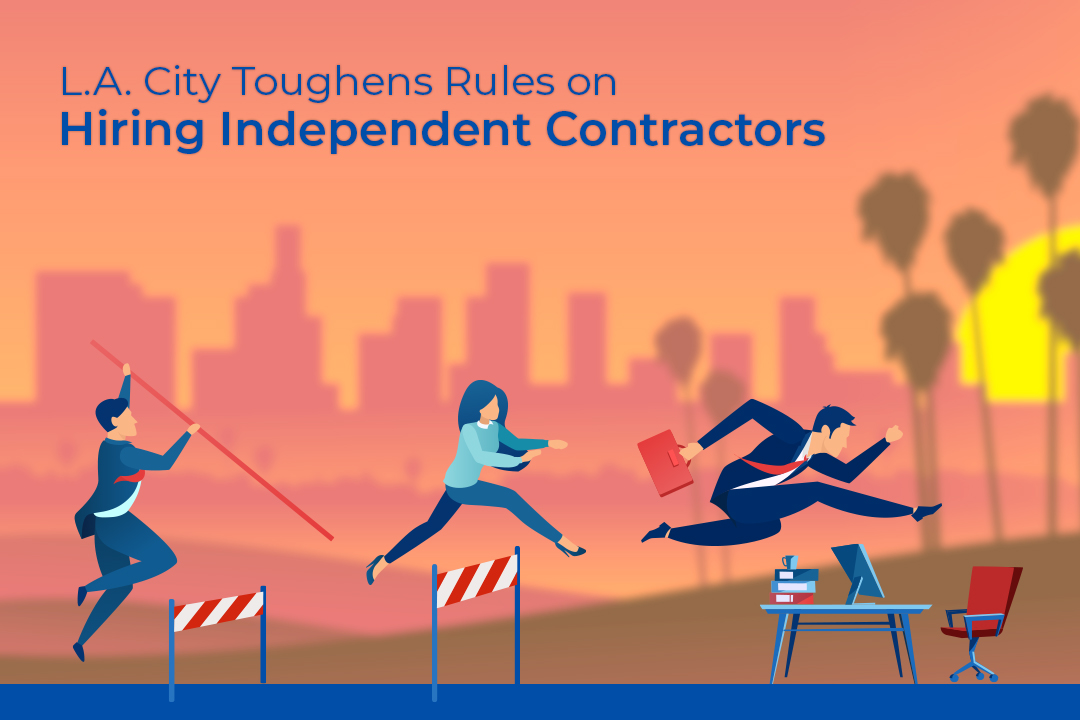More rules for L.A. city-based companies that hire independent contractors
Written in conjuction with Cayley Gosnell, Esq., Miller Law Partners
As of July 1, 2023, the Freelance Worker Protections Ordinance (the “Ordinance”) became law
in the City of Los Angeles. It adds to the rules that companies already have to follow when hiring
independent contractors, which is called the “ABC Test.”
Who qualifies as a “freelance worker”?
The Ordinance only covers independent contractors, which are people or businesses with no
more than one employee who are hired by a company (the “Hiring Entity”) to do work in
exchange for money.
The Ordinance does not apply to the following types of workers:
- Individuals who perform services without compensation, such as volunteers;
- Individuals who are already employees of a Hiring Entity;
- Individuals who are already legally required to enter into a written agreement in order to provide services in exchange for compensation;
- Individuals who themselves have one or more employees;
- App-based transportation and delivery drivers such as ridesharing companies (i.e., Uber, Lyft, GrubHub, DoorDash, etc.)
Who qualifies as a hiring entity?
Someone or something that regularly does business or commercial action is called a Hiring
Entity. There are exceptions to the Ordinance for businesses that hire app-based drivers to do
delivery or transportation work.
What type of work does the Ordinance apply to?
The Ordinance covers any work the freelancer is hired to do in the City of Los Angeles that is worth $600 or more, either as a single job or as a total of all jobs completed in a calendar year.
What does the Ordinance require?
- When the deal is worth $600 or more, the hiring entity must give the freelance worker a written contract. The written contract must include at least the following:
-
-
- Name, address, phone number, and email address (if available) of both the Freelance Worker and the people/company hiring;
- A list of all the services the freelancer is supposed to provide, how much those services are worth, and how much they will be paid; and
- The due date for the hiring entity to pay the agreed-upon amount or the method used to figure out that due date.
-
- As agreed upon in the written contract, the hiring entity must pay the freelance worker in full by the due date. In the event that there is no date in the signed contract, the hiring entity must pay within 30 days of the work being finished.
- The hiring entity and the freelancer both have to keep records for 4 years. These are the contract, the payment record, and any other written or digital records that show the Ordinance was followed.
- The hiring entity can’t punish, retaliate against, or do anything else bad at work to any freelance workers for practicing their rights.
- Both the hiring entity and the freelance worker cannot agree to give up the rights and duties set out in the Ordinance.
What happens if the Ordinance is violated?
If hiring entities break the Ordinance, they could be investigated by the Los Angeles City Office of Wage Standards or sued in civil court.
Businesses with operations in the City of Los Angeles are encouraged to contact experienced employment counsel to review all existing and proposed independent contractor relationships and agreements.

